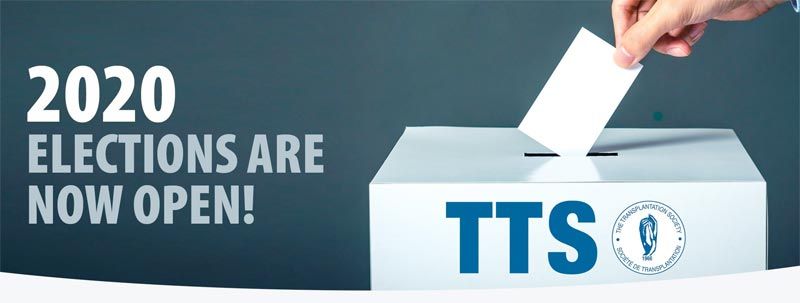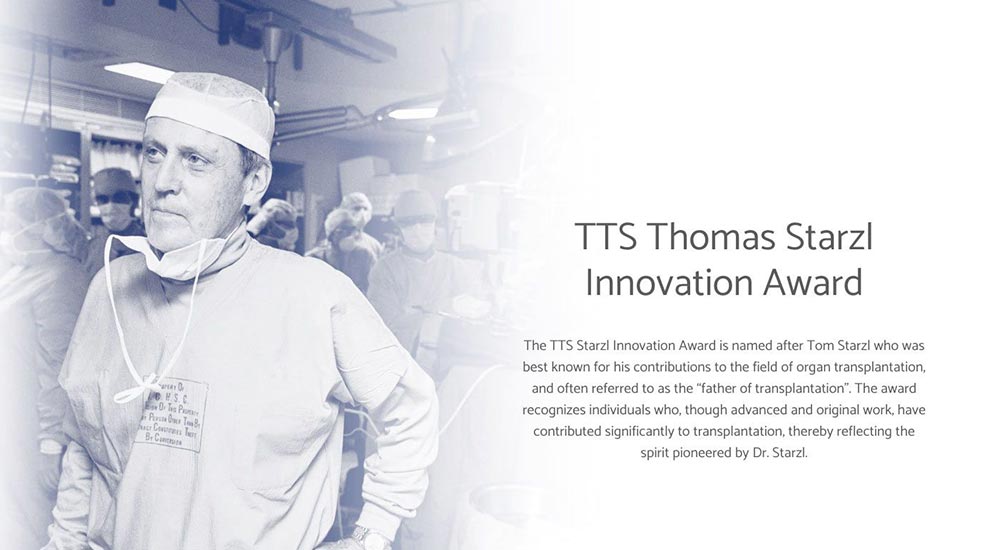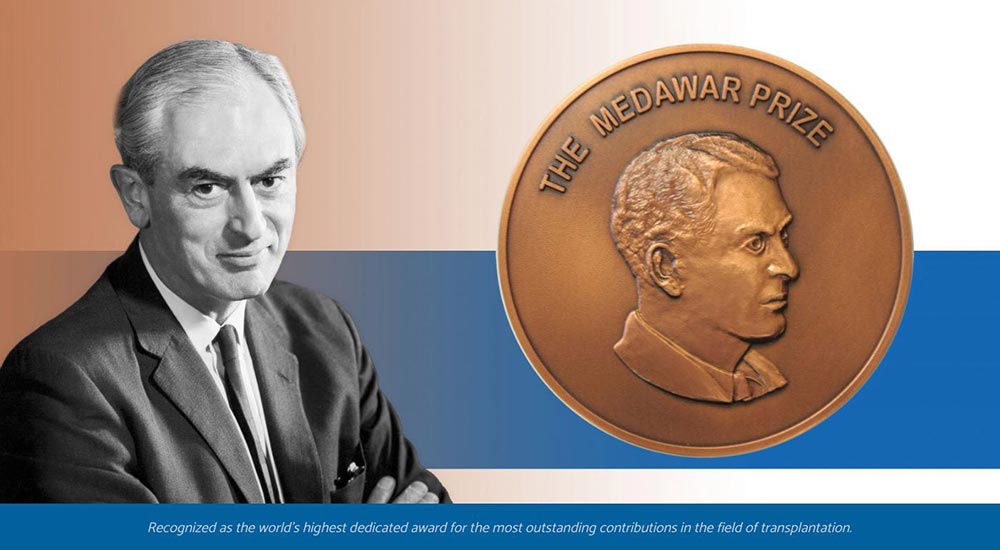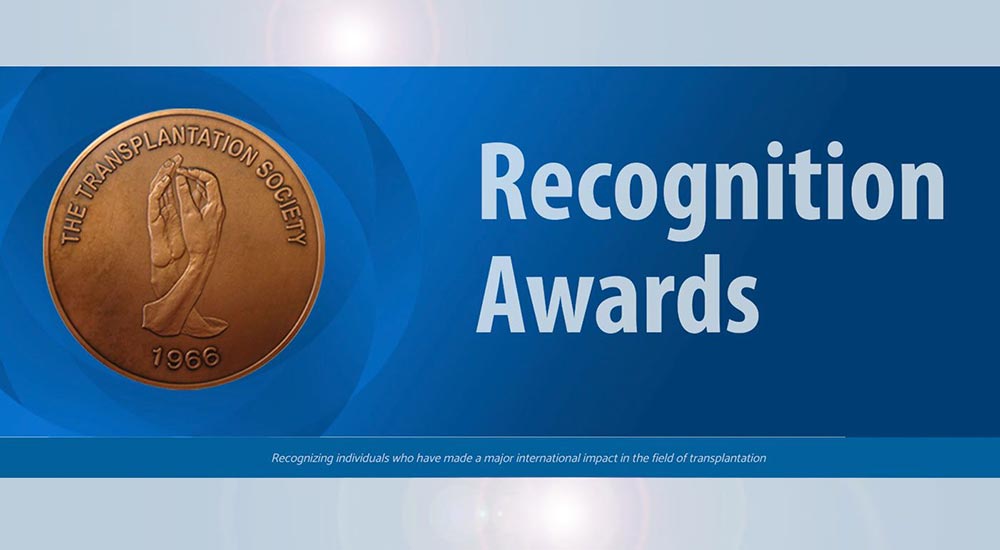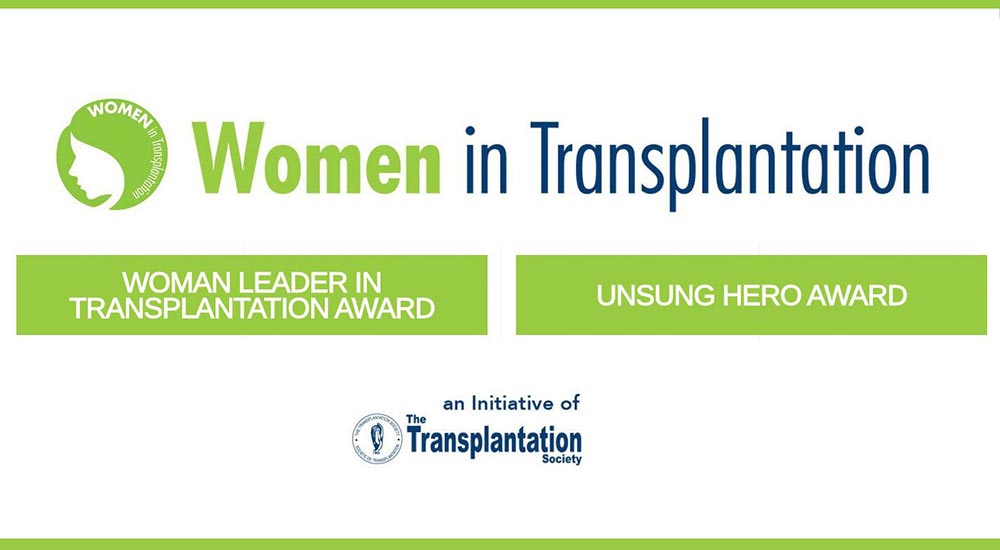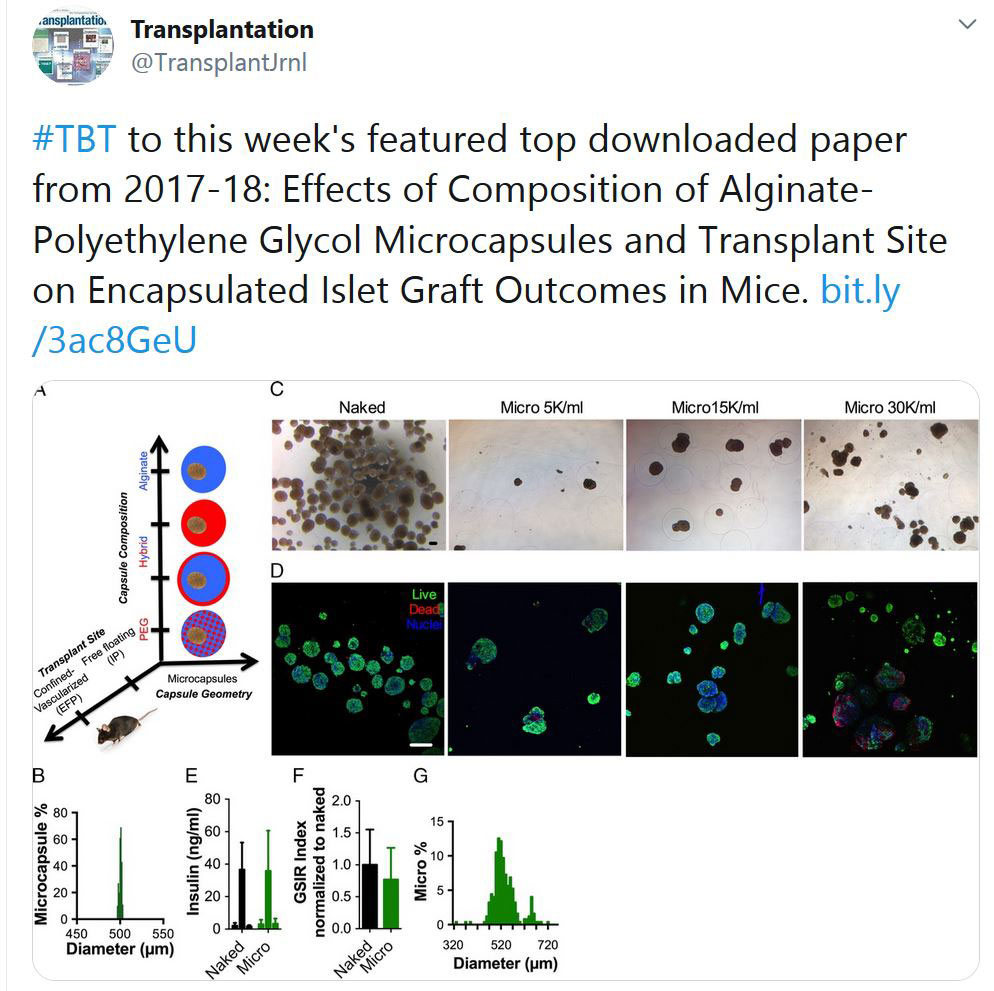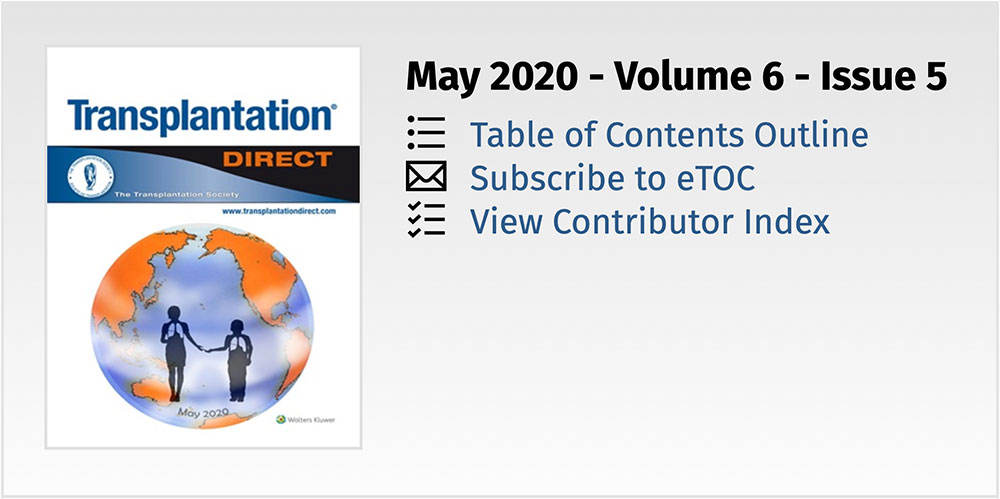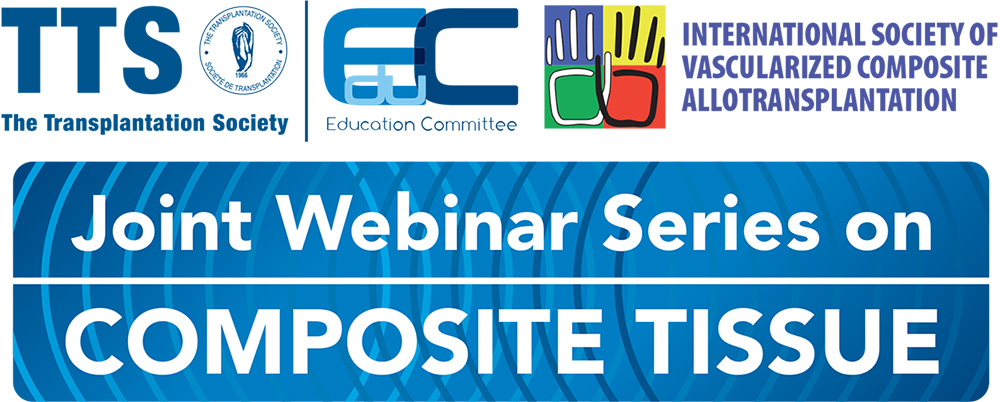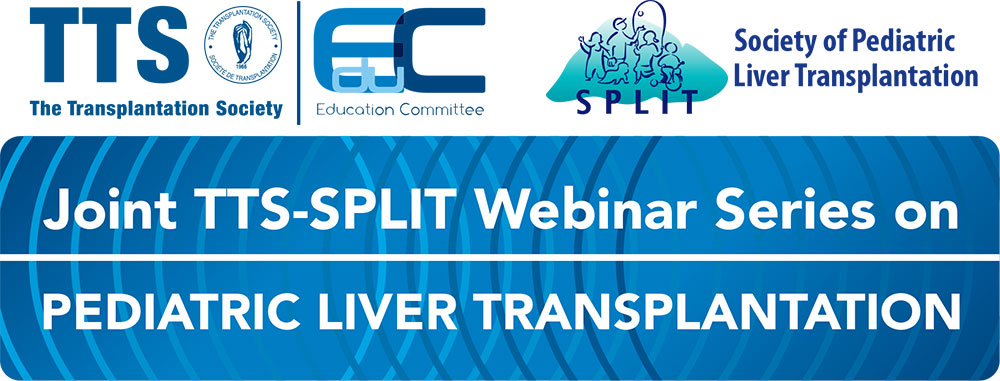
TTS 2020 OFFICERS AND COUNCIL ELECTIONS
We are pleased to announce the start of the 2020 TTS Elections. We encourage you to participate in these elections to help determine your representatives for TTS Council.
TTS 2020 CALL FOR AWARDS ANNOUNCEMENT & NEW TTS STARZL INNOVATION AWARD
TTS THOMAS STARZL INNOVATION AWARD
Application Extended Deadline - May 22, 2020
The award recognizes individuals who, though advanced and original work, have contributed significantly to transplantation, thereby reflecting the spirit pioneered by Dr. Starzl.
THE MEDAWAR PRIZE
Application Extended Deadline - May 22, 2020
Recognized as the world's highest dedicated award for the most outstanding contributions in the field of transplantation.
TTS RECOGNITION AWARDS
Application Extended Deadline - May 22, 2020
These awards recognize individuals who have made a major international impact in the field of transplantation.
WIT AWARDS
Application Extended Deadline - May 22, 2020
The Woman Leader in Transplantation Award and Unsung Hero Award will be presented to women with extraordinary impact in the field.
TRANSPLANTATION - HIGHLIGHTED ARTICLE

Dr. Karen Keung, Editorial Fellow, Transplantation
Induction Therapy in Elderly Kidney Transplant Recipients With Low Immunological Risk
Masset C, Boucquemont J, Garandeau C, et al.
Transplantation: March 2020 - Volume 104 - Issue 3 - p 613-622
Few studies have compared patient and graft outcomes in elderly renal transplant recipients, stratified by induction therapy (anti-thymocyte globulin(ATG) versus basiliximab(BSX). In this study, the authors examined this using data from the French multicentric DIVAT cohort. Non-sensitised recipients ≥65 years receiving a first kidney transplant from brain-dead donors were included totalling 383 patients, of which 204 (53.3%) were in the BSX group and 179 in the ATG group (46.7%). The mean ages were 71y and 70.5y respectively (p=0.373). Median duration of follow up was 2 years (0-8.2 years). For the primary outcome of patient and graft survival, there was no significant difference between the two groups at 3 years post-transplant (74% in ATG, 68% in BSX), nor were there differences for the secondary outcomes of infections, acute rejection, malignancy, 1-year denovo DSA, 1-year eGFR or DGF, although a higher incidence of post-transplant diabetes was observed in the BSX group. This study demonstrates that induction with ATG does not lead to poorer outcomes in the elderly in the medium-term, but warrants further evaluation in long-term studies.
TRANSPLANTATION - WEEK'S MOST DOWNLOADED PAPER
JUST RELEASED - TRANSPLANTATION DIRECT - MAY ISSUE
The May issue of Transplantation Direct offers interesting articles on a variety of topics involving different organ systems. Included in this issue is an overview on the relationship between the development of non-HLA anti-ARHGDIB/RhoGDI2 antibodies and kidney graft failure. Also, investigators review and perform a meta-analysis on the relationship between autosomal dominant polycystic kidney disease and risk for posttransplantation diabetes mellitus. In liver transplantation, there are results from a pilot study testing the use or reactive hyperemia index (measuring endothelial function) to predict posttransplant ascites and spontaneous bacterial peritonitis. Further studies look at the use of specific microRNAs as biomarkers for lung transplant outcomes and for predicting cardiac allograft vasculopathy after heart transplantation. In pancreas transplantation publish a large single-center report on outcomes following enteric conversion (due to bladder drained pancreata complications), and have an analysis of psychological issues related to simultaneous pancreas-kidney transplantation. For full information and details, please visit our open access Transplantation Direct website.
«HOT OFF THE PRESS» RECENT PUBLICATIONS IDENTIFIED BY TTS EDUCATION COMMITTEE ON COVID-19
This week's selection made by: Enver Akalin, Marcelo Cantarovich and Medhat Askar

Renin-Angiotensin-Aldosterone System Inhibitors and Risk of Covid-19.
Reynolds HR, Adhikari S, Pulgarin C, Troxel AB, Iturrate E, Johnson SB, Hausvater A, Newman JD, Berger JS, Bangalore S, Katz SD, Fishman GI, Kunichoff D, Chen Y, Ogedegbe G, Hochman JS.
N Engl J Med. 2020 May 1. doi: 10.1056/NEJMoa2008975. [Epub ahead of print]
PMID: 32356628
This article assessed the relation between previous treatment with ACE inhibitors, angiotensin-receptor blockers, beta-blockers, calcium-channel blockers, or thiazide diuretics and the likelihood of a positive or negative result on Covid-19 testing as well as the likelihood of severe illness (defined as intensive care, mechanical ventilation, or death) among 5894 patients who tested positive. There was no increased risk between positive test for Covid-19 or in the risk of severe Covid-19 among patients who tested positive in association with five common classes of antihypertensive medications.
The race for coronavirus vaccines: a graphical guide.
Callaway E.
Nature. 2020 Apr;580(7805):576-577. doi: 10.1038/d41586-020-01221-y. No abstract available.
PMID: 32346146
This short article explains each COVID-19 vaccination design (virus vaccines, nucleic acid vaccines, viral-vector vaccines and protein based vaccines).
Antibody responses to SARS-CoV-2 in patients with COVID-19.
Long QX, Liu BZ, Deng HJ, Wu GC, Deng K, Chen YK, Liao P, Qiu JF, Lin Y, Cai XF, Wang DQ, Hu Y, Ren JH, Tang N, Xu YY, Yu LH, Mo Z, Gong F, Zhang XL, Tian WG, Hu L, Zhang XX, Xiang JL, Du HX, Liu HW, Lang CH, Luo XH, Wu SB, Cui XP, Zhou Z, Zhu MM, Wang J, Xue CJ, Li XF, Wang L, Li ZJ, Wang K, Niu CC, Yang QJ, Tang XJ, Zhang Y, Liu XM, Li JJ, Zhang DC, Zhang F, Liu P, Yuan J, Li Q, Hu JL, Chen J, Huang AL.
Nat Med. 2020 Apr 29. doi: 10.1038/s41591-020-0897-1. [Epub ahead of print]
This article reported acute antibody responses to SARS-CoV-2 in 285 patients with COVID-19. Within 19 days after symptom onset, 100% of patients tested positive for antiviral immunoglobulin-G (IgG).
Endothelial cell infection and endotheliitis in COVID-19.
Varga Z, Flammer AJ, Steiger P, Haberecker M, Andermatt R, Zinkernagel AS, Mehra MR, Schuepbach RA, Ruschitzka F, Moch H.
Lancet. 2020 May 2;395(10234):1417-1418. doi: 10.1016/S0140-6736(20)30937-5. Epub 2020 Apr 21. No abstract available.
PMID:32325026
This article demonstrated endothelial cell involvement across vascular beds of different organs in a series of patients with COVID-19 (one patient is kidney transplant recipient).
COVID-19 Research in Brief: 24 April to 1 May, 2020.
Carvalho T.
Nat Med. 2020 May 1. doi: 10.1038/d41591-020-00016-y. [Epub ahead of print] No abstract available.
PMID:32358592
This article summarizes last week’s articles regarding clinical trials, testing, diagnostics and epidemiology related to COVID-19.
CORONAVIRUS (COVID-19) UPDATE DASHBOARD
The Transplantation Society (TTS) and our journal Transplantation have developed online resources to keep you informed on the Coronavirus (COVID-19) outbreak.
- TTS Coronavirus (COVID-19) Dashboard
www.tts.org/covid-19 - Transplantation Global Transplantation COVID Report
www.tts.org/txjcovid19
We are also requesting contributions and news from the transplant community to be sent to covid-19@tts.org for inclusion on our resources page.
In this dashboard, you will find links to TTS and other global and regional resources, as well as interactive maps, publications and webinars. We encourage you to explore this dashboard and share with your colleagues.
Website - www.tts.org/covid-19
Editors and contributors to Transplantation have shared their thoughts on how they are dealing with the current crisis. While we understand that the information of today may be quite different tomorrow in this fast-moving pandemic, this report will open our forum of an international exchange on COVID for the transplant community.
Website - www.tts.org/txjcovid19
Please send your own contributions and news to covid-19@tts.org for inclusion on our resources page.
TUESDAY, MAY 26 - WEBINAR ANNOUNCEMENT
TITLE: IMMUNOLOGY OF VCA
TUESDAY, MAY 26, 2020 10:00AM EDT (MONTREAL TIME)
Objectives:
To provide an overview on similarities and differences identified in VCA vs solid organ transplants.
TTS-SPLIT WEBINAR RECORDING IS AVAILABLE
TITLE: Discussion on SPLIT Registry Analysis Demonstrating Improved Outcomes for Liver Transplantation in Patients with Biliary Atresia Since PELD Implementation
CLICK HERE TO VIEW THE RECORDING
(YOU MUST BE LOGGED INTO THE WEBSITE)
Objectives:
- Understand changes in disease severity of patients with biliary atresia awaiting liver transplantation
- Describe current risk factors affecting post-transplant patient and graft survival in biliary atresia and how these have evolved over time
- Understand the factors that influence risk stratification for deceased technical variant grafts in patients with biliary atresia
IN THE NEWS
MACHINE THAT KEEPS LIVERS ALIVE FOR A WEEK CAN REPAIR DAMAGED ORGANS
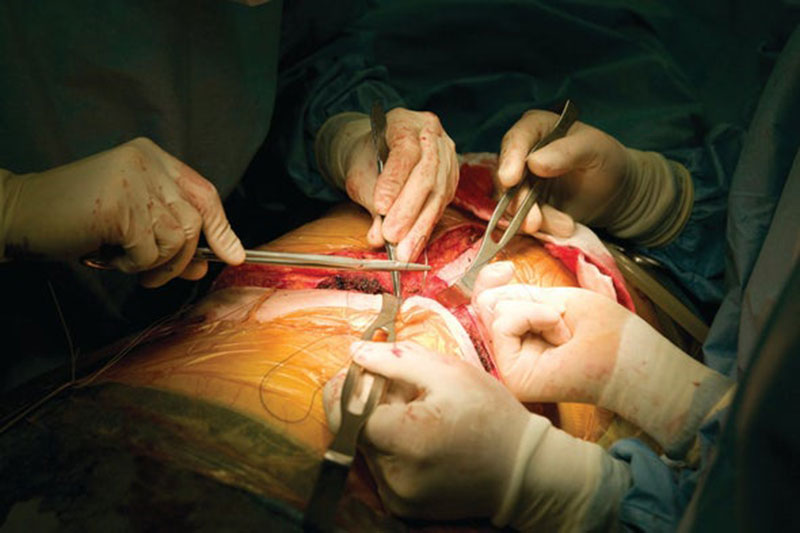
May 3 - A new device could ultimately increase the number of usable livers for transplants and could perhaps preserve other types of organs.
KIDNEY TRANSPLANT PATIENT DEATHS WITH COVID-19
April 30 - The risk of death among kidney transplant patients infected with COVID-19 is so high that at least one transplant center in New York City has stopped offering kidney transplantation until it is safer to do so.
STEM CELL ‘MIST’ CURED COVID-19 PATIENTS IN THE MIDDLE EAST, DOCTORS SAY. HERE’S HOW
May 4 - Researchers at the Army’s premiere infectious diseases lab are working on a test that could detect coronavirus in people who have no symptoms – a critical step in getting the nation back to a more normal daily life.
A WORLD FIRST: ASSESSING KIDNEY QUALITY BEFORE TRANSPLANTATION USING PHOTOACOUSTIC IMAGING
April 30 - Researchers discover non-invasive method to visualize damage in donor kidneys - empowering doctors to match kidney quality with patient life expectancy for longer-lasting transplantation outcomes.
FECAL TRANSPLANTATION, PROMISING IN THE FIGHT AGAINST ANTIBIOTIC RESISTANCE
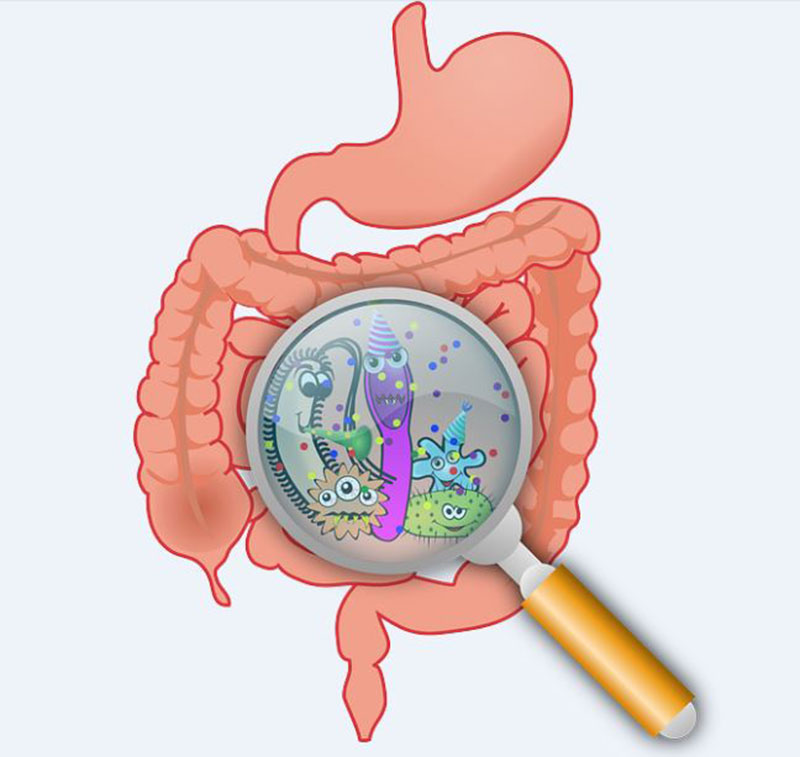
May 2 - In recent studies, researchers showed that fecal microbial transplantation can cure patients suffering from antibiotic-resistant infections. In this technique, the fecal matter is taken from a healthy donor before being transplanted to a sick patient.
UPCOMING MEETINGS AND ANNOUNCEMENTS
3rd IPITA/JDRF/HSCI Conference on Stem Cell Derived Beta Cells
Contact
Address
The Transplantation Society
International Headquarters
740 Notre-Dame Ouest
Suite 1245
Montréal, QC, H3C 3X6
Canada
Используйте Вавада казино для игры с бонусом — активируйте промокод и начните выигрывать уже сегодня!

